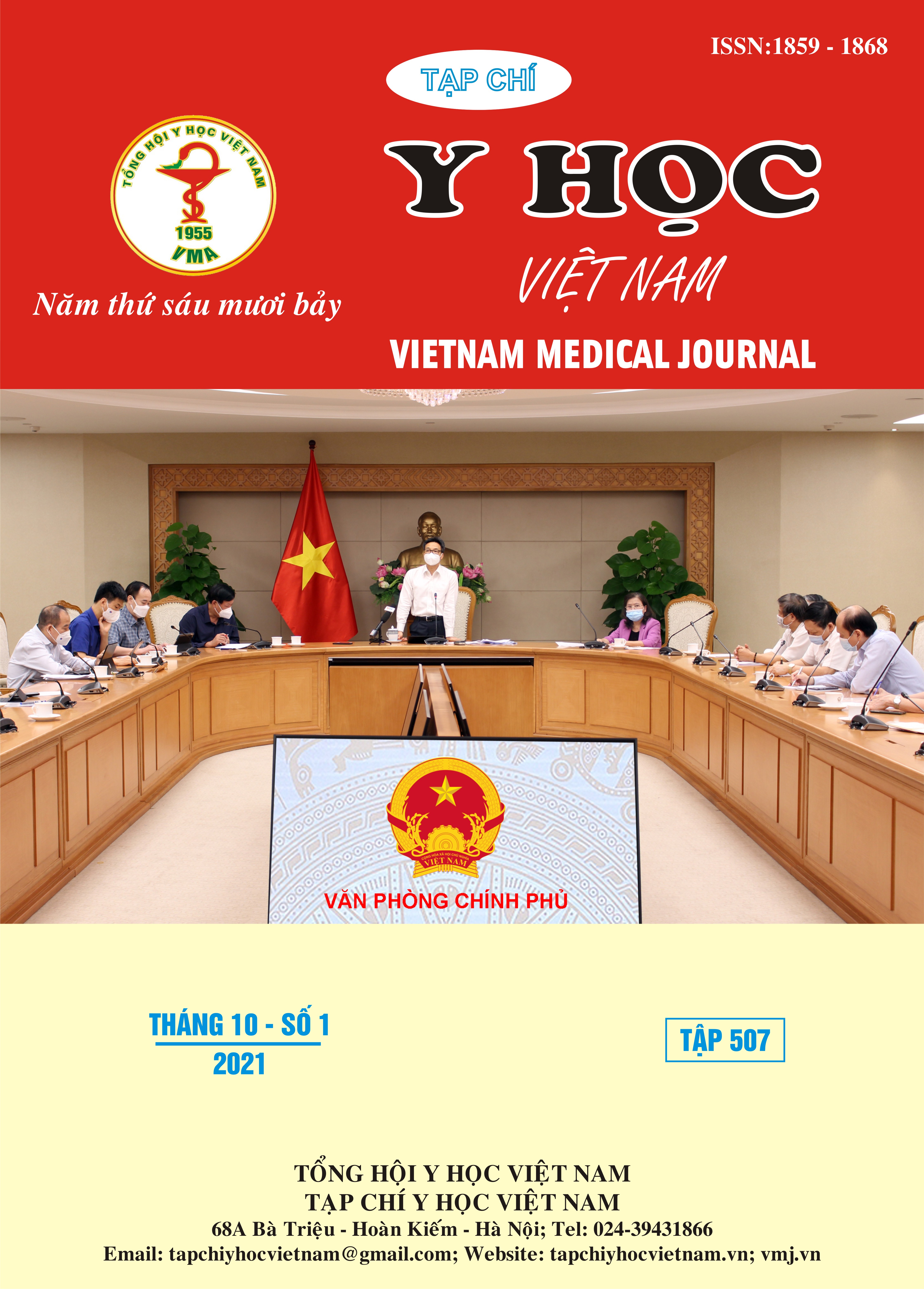LEVELS OF KNOWLEDGE AND ATTITUDE ABOUT COVID-19 OF NURSING STUDENTS AT HANOI MEDICAL COLLEGES, 2020
Main Article Content
Abstract
Objective: To describe levels of knowledge and attitudes of nursing students at Hanoi Medical College about Covid-19. Methods and subjects: A cross-sectional descriptive study was conducted on 597 nursing students at Hanoi Medical College. Results: The average score for knowledge and attitude were 9.3±1.7 and 44.8±7.2, respectively. Majority of the study’s participants had correct knowledge about pathogens (85.4%), transmission route (99.0%), incubation period (89.1%) and wearing personal protective equipment (89.0%). Regarding students' attitudes, most students had a positive attitude about COVID-19, besides a significant proportion of the participants had a negative attitude about the risk of self-infection (30.4%) and family (28.2%). There were significant differences in knowledge and attitude scores between genders, sources of information about COVID-19 from the Ministry of Health/universities and colleges/relatives/friends (p<0.05). Conclusion: In general, the percentage of nursing students with good knowledge about COVID-19 is quite high; In which, the rate of having incorrect knowledge is still high in questions related to treatment, symptoms of COVID-19 and the disease prevention system in Vietnam, most of the students had a positive attitude. about COVID-19. The above knowledge aspects, gender and sources of information about COVID-19 should be considered when conducting public health training courses for students.
Article Details
Keywords
COVID-19, knowledge, attitude, nursing students
References
2. Cutler D (2020). How Will COVID-19 Affect the Health Care Economy? Jama, 323(22), 2237-2238.
3. Bộ Y tế. Trang tin về dịch bệnh viêm đường hô hấp cấp COVID-19. https:// ncov.moh.gov.vn/ vi/web/guest/ trang-chu. Published 2019. Accessed 24-06-2021.
4. Ha BTT, Ngoc Quang L (2020). Combating the COVID-19 Epidemic: Experiences from Vietnam. 17(9).
5. Ikhlaq A, Hunniya B-E, Riaz IB et al (2020). Awareness and attitude of undergraduate medical students towards 2019-novel corona virus. Pakistan Journal of Medical Sciences, 36(COVID19-S4), S32.
6. Peng Y, Pei C, Zheng Y et al (2020). Knowledge, attitude and practice associated with COVID-19 among university students: a cross-sectional survey in China.
7. Gao Z, Ying S, Liu J et al (2020). A cross-sectional study: Comparing the attitude and knowledge of medical and non-medical students toward 2019 novel coronavirus. Journal of infection and public health, 13(10), 1419-1423.
8. Duong MC, Nguyen HT, Duong BT et al The Levels of COVID-19 Related Health Literacy among University Students in Vietnam, Infect Chemother. 2021 Mar;53(1):107-17. doi: 10.3947/ic.2020.0152. Epub 2021 Mar 16.,
9. Al-Hanawi MK, Angawi K, Alshareef N et al (2020). Knowledge, Attitude and Practice Toward COVID-19 Among the Public in the Kingdom of Saudi Arabia: A Cross-Sectional Study. Frontiers in public health, 8, 217.


